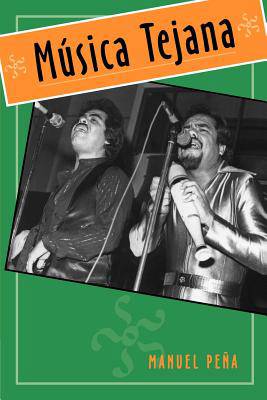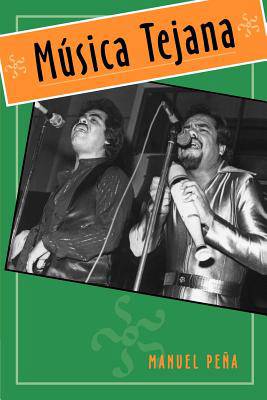
- Retrait gratuit dans votre magasin Club
- 7.000.000 titres dans notre catalogue
- Payer en toute sécurité
- Toujours un magasin près de chez vous
- Retrait gratuit dans votre magasin Club
- 7.000.000 titres dans notre catalogue
- Payer en toute sécurité
- Toujours un magasin près de chez vous
Música Tejana
The Cultural Economy of Artistic Transformation
Manuel H Pena, Manuel H Peena
Livre broché | Anglais | University of Houston Mexican American Studies, Sponsored by the Center for Mexican Americ | n° 1
21,95 €
+ 43 points
Description
Texas-Mexican music, or música tejana, is not one single music but several musical and musico-literary genres, ensembles, and their styles, encompassing the corrido, canción, and what author Manuel Peña calls the canción-corrido. Música tejana also includes two major regional ensembles and their styles-the conjunto and the Texas-Mexican version of the orquesta. A more recent crop of synthesizer-driven ensembles and their styles, known since the mid-eighties as "Tejano," is another representative of música tejana. Despite their diversity, these various ensembles, genres, and styles share two fundamental characteristics: they are all homegrown, and they all speak after their own fashion to fundamental social processes shaping Texas-Mexican society. As Peña persuasively argues, they represent a transforming cultural economy and its effects on Texas-Mexicans. Peña traces the history of música tejana from the fandangos and bailes of the nineteenth century through the canción ranchera and the politically informed corrido to the most recent forms of Tejano music. In the beginning, he argues, musicmaking was a function of "use-value"-its symbolic power linked to the social processes of which it was an organic part. As música tejana was swept into the commercial market, it added a second, less culturally grounded dimension-"exchange-value"-whereby it came under the culturally weakening influence of the commercial market. Since the 1940s, the music has oscillated between the extremes of use- and exchange-value, though it has never lost its power to speak to issues of identity, difference, and social change. Música Tejana thus gives not only a detailed overview of música tejana but also analyzes the social and economic implications of the music. The breadth, depth, and clarity with which Peña has treated this subject make this a most useful text for those interested in ethnomusicology, folklore, ethnic studies, and Mexican American culture. Manuel Peña, who received his Ph.D. in ethnomusicology and folklore from the University of Texas, has been a professor of anthropology and music at the University of Texas at Austin and California State University, Fresno. He is the author of The Texas-Mexican Conjunto: History of a Working-Class Music and The Mexican American Orquesta: Music, Culture, and the Dialectic of Conflict.
Spécifications
Parties prenantes
- Auteur(s) :
- Editeur:
Contenu
- Nombre de pages :
- 256
- Langue:
- Anglais
- Collection :
- Tome:
- n° 1
Caractéristiques
- EAN:
- 9780890968888
- Date de parution :
- 01-04-99
- Format:
- Livre broché
- Format numérique:
- Trade paperback (VS)
- Dimensions :
- 156 mm x 237 mm
- Poids :
- 453 g







